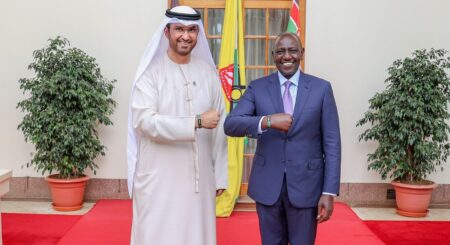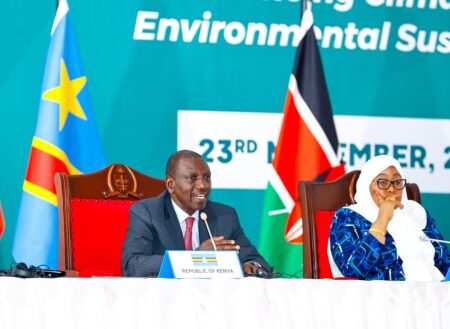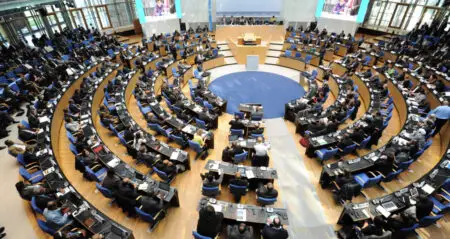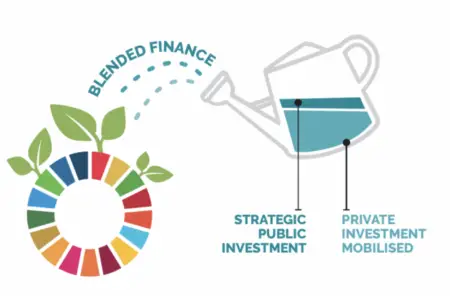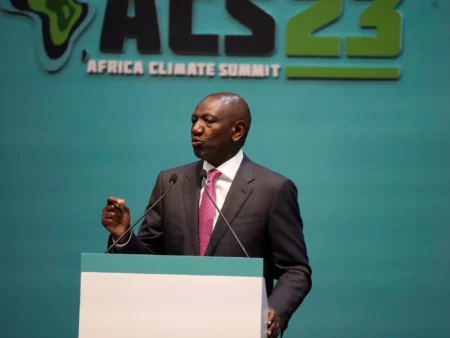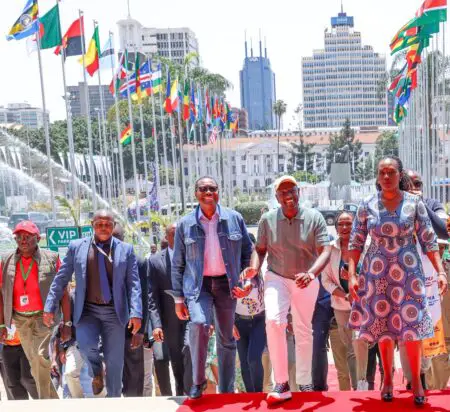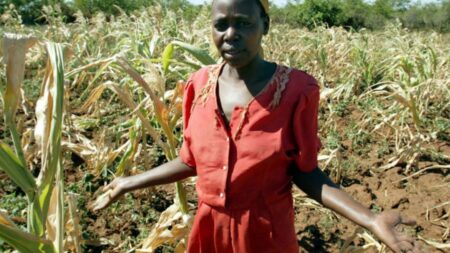- Wärtsilä Energy offers tips on how Africa can navigate energy transition and grid reliability
- Powering Africa: Africa’s Path to Universal Electricity Access
- Global investment trends at AIM Congress 2024: a spotlight on the keynote speakers
- South Africa’s deepening investment ties in South Sudan oil industry
- Agribusiness could drive Africa’s economic prosperity
- Dawood Al Shezawi: Why AIM Congress 2024 is the epicenter of global economic and cultural dialogues
- d.light’s 600,000 cookstoves project verified as top source of quality carbon credits
- Artificial intelligence (AI) could create a turning point for financial inclusion in Africa
Browsing: Climate change
- President William Ruto will lead Kenya at COP28 to showcase the country’s ambitious climate change strategy and advocate for sustainable development and climate resilience in Africa.
- Kenya is pioneering clean energy solutions, notably through biodigesters, which convert organic waste into biogas and organic fertilizer, aligning with the nation’s agricultural profile and enhancing energy independence.
- At COP28, Kenya aims to inspire global action and demonstrate that sustainable development is achievable in emerging economies, contributing significantly to the global climate change dialogue.
As the world convenes in Dubai for COP28, a significant spotlight falls on Kenya. Under President Ruto’s leadership, Kenya goes to this global summit not merely as a participant but as a catalyst for Africa in bridging climate dialogue and action.
At the heart of these discussions lies the country’s ambitious strategy to combat climate change, an approach intrinsically linked to the broader global efforts to mitigate environmental risks and …
- For African universities, governments and businesses, 5G Tech Spaces are part of the solution to enable Africa to leapfrog with clean innovation.
- Africa’s climate finance inflows remain very low, at 3 percent of global climate finance.
- The continent requires as much as $2.8 trillion through 2030 to implement its climate commitments.
Africa’s most renowned universities are keen to be at the forefront of Research, Innovation and Outreach (RIO) of technologies, products, services and operating models that reduce CO2 emissions and help attain Net Zero Emissions (NZE).
To achieve this, the gap between rhetoric and action needs to be reduced, if we are to have a fighting chance of reaching Net Zero by 2050 and capping the rise in global temperature at 1.5 °C in full attainment of the Paris Agreement.
Africa produces only about 4 percent of the world’s emissions, but is disproportionately vulnerable to the impact of climate change. …
- The East African Community (EAC) will approach the upcoming COP 28 Climate Summit, to be held in Dubai from November 30th to December 12th, 2023, as one bloc.
- No country should have to choose between its development aspirations and climate change mitigation; there is a need for complementarity as opposed to competition among Partner States.
- The move comes as the continent faces the most severe challenges, including the ongoing El-Nino floods and drought that have caused havoc due to climate change.
The East African Community has revealed its intention to present a united front at the upcoming COP 28 Climate Summit scheduled to take place in Dubai, the United Arab Emirates, from November 30th to December 12th, 2023.
Addressing participants at the EAC High-Level Forum on Climate Change and Food Security in Arusha, Tanzania, EAC Secretary-General Peter Mathuki emphasized the significance of the EAC having a unified stance as it …
In recent years, Africa has gained increasing attention in the climate change dialogue, especially its role in the global carbon offset market. But what exactly does this mean for the continent and the world? This article delves into the concept of carbon offsets in Africa, explores the benefits, assesses Africa’s contribution to global emissions, and examines the leading countries in carbon trading.…
The Conference of the Parties (COP) to the United Nations Framework Convention on Climate Change (UNFCCC) represents an important international forum for countries to discuss and address global climate change issues. However, these conferences have tended to be high-level and process-based, and COP 27 was no exception. – negotiations took place, and some of the highlights included the historic establishment of the loss and damage fund, which was seen as setting a precedent for climate justice.
However, agreements on other matters, such as phasing out fossil fuels and setting emission peak periods, were not achieved. For African countries, COP 28 marks an important pivot point around funding, just transition, and the Nairobi Declaration. There will be a push for realisations on commitments made and innovative funding mechanisms to drive accelerated climate action now and beyond.…
- Three Kenyan startups have been selected for an incubation programme after winning the Cyber Security Hackathon at the just concluded Blue Economy Innovation and Investment Summit.
- The three startups, which are based in Mombasa include Bio Secure, Tide Safetynet and Seatrust Navigator.
- Sote Hub Founder David Ogiga says the three startups will receive six months technical and financial support to bring their ideas to life.
Three Kenyan startups have been selected for an incubation program after winning the Cyber Security Hackathon at the recently concluded Blue Economy Innovation and Investment Summit. The startups, based in Mombasa, include Bio Secure, Tide Safetynet, and Seatrust Navigator. Sote Hub Founder David Ogiga stated that these three startups would receive six months of technical and financial support to bring their ideas to life.
“Our focus for this year’s hackathon at the conference was circular economy, cyber security, blue economy, climate change, and the digital …
With its immense potential and vast resources, Africa stands at a critical point in its economic growth path. While the continent has promising economic prospects, it also has significant challenges that have impeded growth. A concept known as “blended finance” has gained popularity in recent years as a viable answer to assist governments in overcoming economic challenges. As a result, it is vital to look into what blended finance is, how African economies can leverage its benefits and its crucial role in supporting sustained growth across the continent.…
A considerable gap exists between symbol and substance regarding an African climate change approach. Foreign leaders often nod to how Africa accounts for only four per cent of global emissions but bears the brunt of the devastating climate change effects. Rising temperatures, extreme weather conditions, and ecosystem disruptions threaten millions of Africans’ livelihoods.
For many communities across the continent, the climate threat is already existential. With 18 per cent of the global population, Africa has 16 of the 20 countries most vulnerable to climate change, according to Notre Dame Global Adaptation Initiative.…
- The Africa Climate Summit 2023 seeks to foster collaborative efforts in addressing the pressing climate crisis.
- Ahead of the summit, President William Ruto calls on the global north to live up to the climate action commitments.
- African government leaders are poised to commit to a Nairobi Declaration at the end of the meeting.
In a historic gathering of minds, an estimated 15,000 individuals, spanning government leaders, policymakers, civil society, the private sector, multilateral institutions, and youth from approximately 80 countries, have converged in Nairobi, Kenya, for the first-ever Africa Climate Summit.
The event has garnered attention from across the globe. Over 30 Heads of State have confirmed their attendance. Also attending will be the US Special Presidential Envoy for Climate John Kerry.
Africa Climate Summit 2023
The primary aim of the Africa Climate Summit 2023 is to foster collaborative efforts in addressing the pressing climate crisis. Earlier Mr. Kerry expressed …
- Currently, East Africa is reeling from the effects of the worst drought on record; extreme heat is ravaging northern Africa while flash floods remain a constant threat.
- This is despite the continent contributing the least to global warming and having the lowest carbon emissions on record.
- According to the African Development Bank (AfDB), Africa is the most vulnerable continent to climate change impacts under all climate scenarios above 1.5 degrees Celsius.
Over the past few years, the frequency and intensity of adverse effects of climate change in different African nations has been on the rise. Rising temperatures, floods, and droughts are as a result of climate change yet the continent contributes the least carbon emissions.
However, resultant collateral damage is posing systemic risks to the continent’s economies. Infrastructure investments, water and food systems, public health, agriculture, and livelihoods are at risk, threatening to undo Africa’s modest development gains. Left unchecked, …





